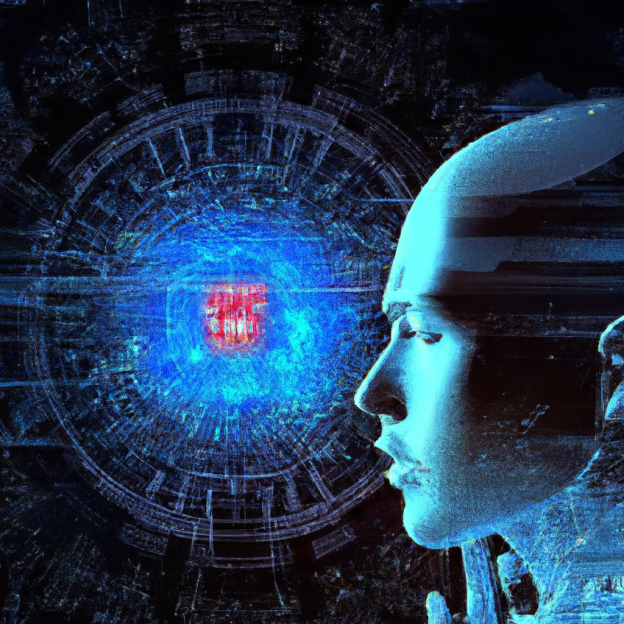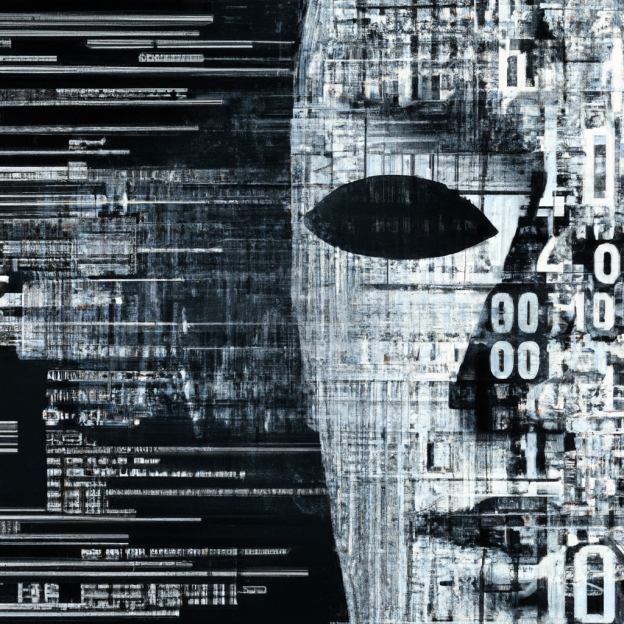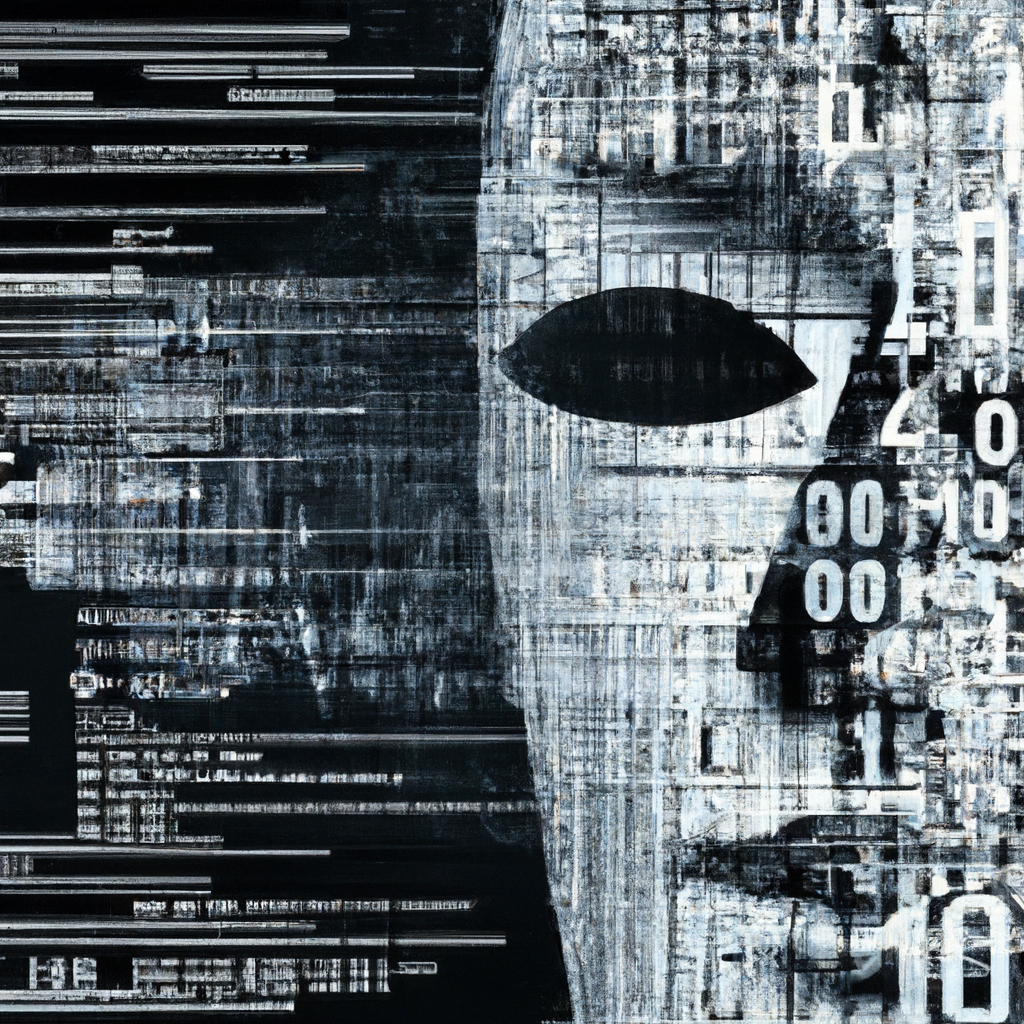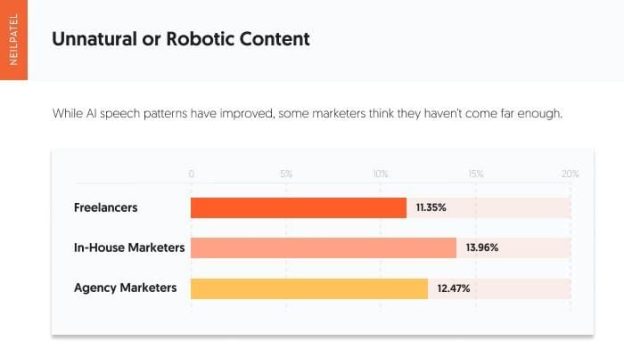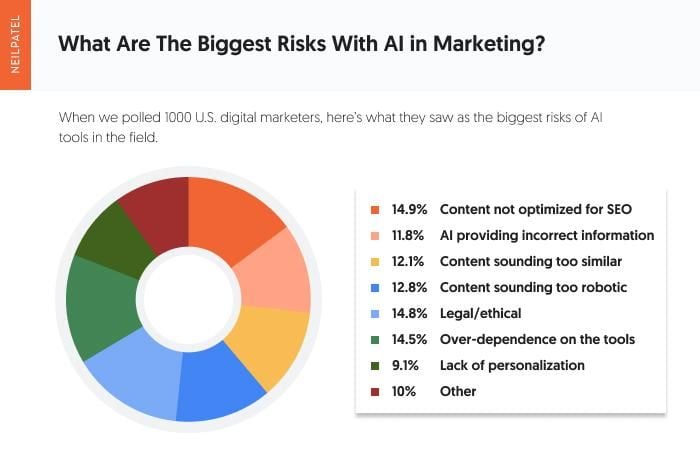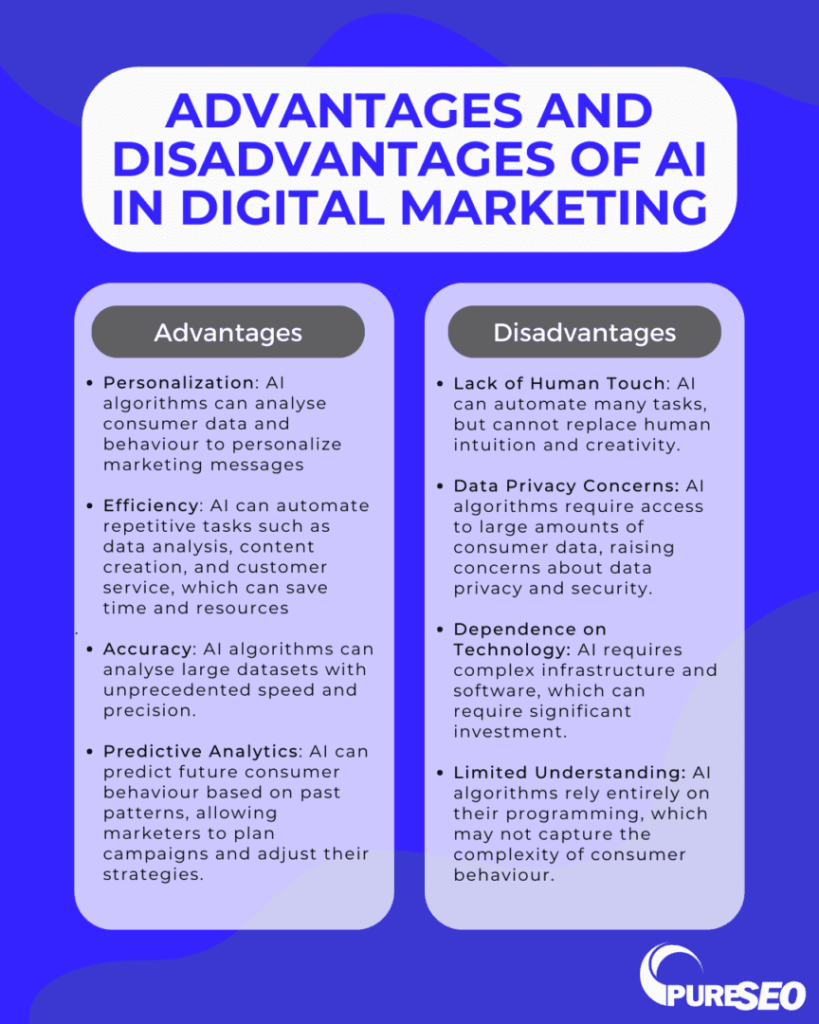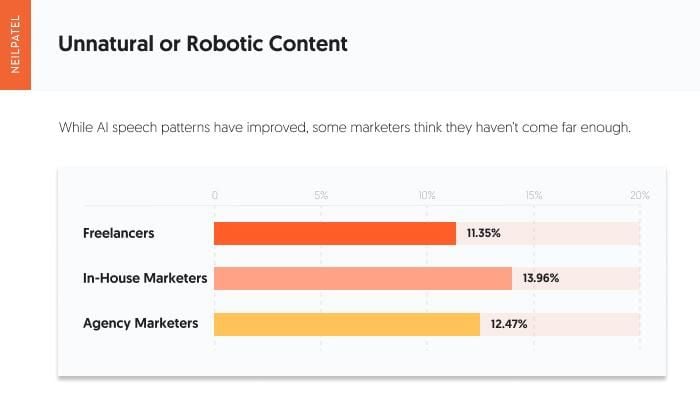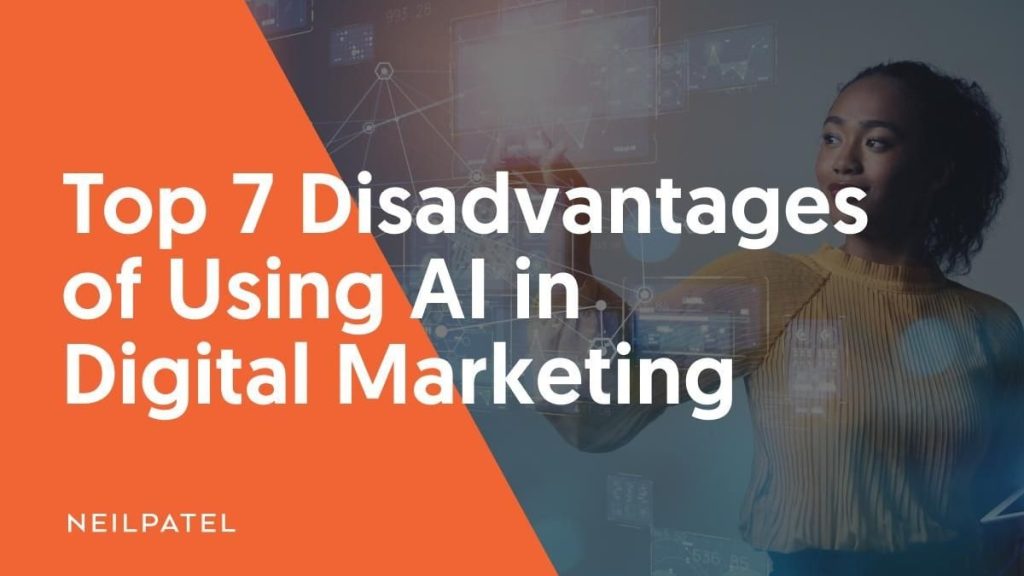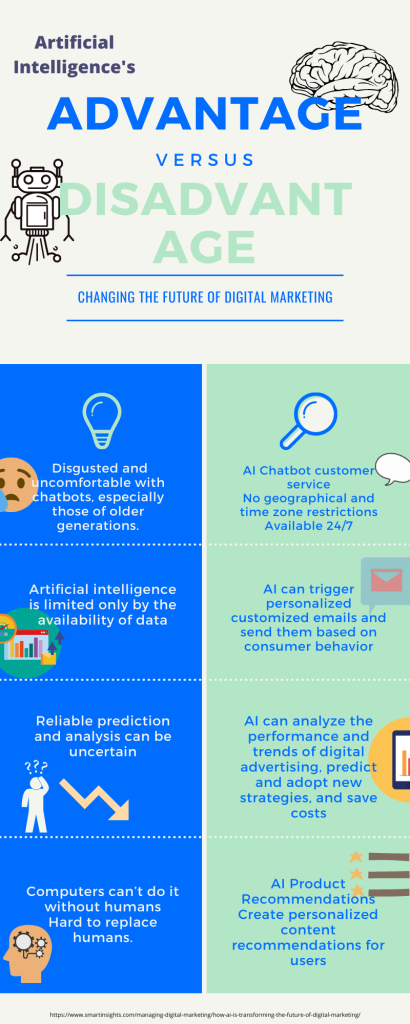Artificial Intelligence (AI) has undoubtedly revolutionized the way we live and interact with technology. From voice assistants to self-driving cars, AI has become an integral part of our daily lives. However, like any other technological advancement, it comes with its own set of drawbacks. In this article, we will explore four major disadvantages of AI that are worth considering in our pursuit of a more automated future. Let’s take a closer look at these potential downsides and how they can impact various aspects of our lives.
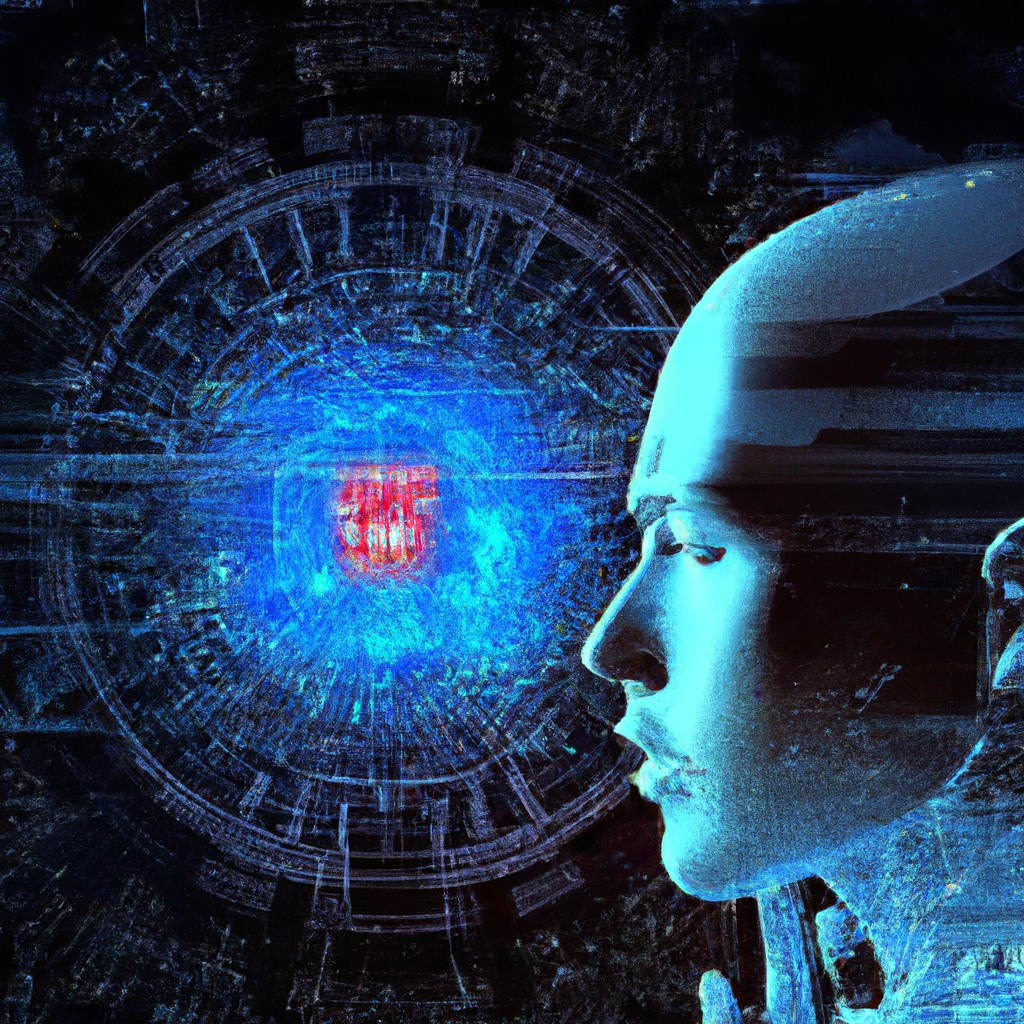
Job displacement
With the rise of Artificial Intelligence (AI) and automation technologies, there is a growing concern about the loss of employment opportunities. As AI becomes more advanced, its ability to perform repetitive tasks, analyze data, and make decisions surpasses that of humans. This has led to the automation of various jobs, especially in industries such as manufacturing, customer service, and transportation. As a result, many individuals find themselves displaced from their jobs, facing unemployment and the challenge of finding new employment opportunities.
Moreover, the skill requirements in the job market are constantly evolving due to advancements in AI. Jobs that once required manual labor or basic cognitive skills are now being taken over by machines, requiring individuals to upskill or reskill to remain relevant in the workforce. This shift in skill requirements further exacerbates the challenges faced by those who are already displaced from their jobs. The need for technology literacy and proficiency in AI-related skills has become increasingly important for both job seekers and those currently employed.
In addition to the loss of employment opportunities and changing skill requirements, AI also contributes to economic inequality. While AI has the potential to generate significant economic growth and increase productivity, it also has the tendency to concentrate wealth and power in the hands of a few. Organizations and individuals who have the resources to adopt and implement AI technologies benefit from increased efficiency and competitiveness, while those who lack access or the means to leverage AI are left behind. This disparity in access and the resulting economic inequality pose significant challenges to achieving a fair and equitable society.
Lack of human intuition
Although AI has made significant advancements in its ability to process data and perform tasks, it still lacks human intuition. Human intuition allows us to deal with unpredictable situations, make decisions based on emotions and context, and understand complex social dynamics. These aspects of human cognition are still difficult for AI systems to replicate accurately.
In situations that require understanding and responding to emotions, AI systems often fall short. Emotional intelligence, which encompasses the ability to recognize, understand, and manage emotions, is a crucial aspect of human interaction and decision-making. AI systems may be able to recognize basic emotions based on facial expressions or voice tone, but they struggle to interpret more nuanced emotional cues and respond appropriately.
Furthermore, AI systems often struggle with understanding contextual information. While they can analyze vast amounts of data and identify patterns, they lack the context and situational understanding that humans possess naturally. This limited ability to comprehend the subtleties of context can lead to inaccuracies and misinterpretations, particularly in areas that require complex decision-making or understanding of ambiguous information.
Ethical concerns
The rapid advancement of AI technology brings about a range of ethical concerns. One of the main concerns is the lack of moral decision-making in AI systems. Unlike humans, AI lacks the capacity for moral reasoning or empathy. This raises questions about the ethical implications of AI-driven decision-making, particularly in situations where human lives or well-being are at stake.
Bias and discrimination are also significant ethical concerns related to AI. AI systems are trained on vast amounts of data, and if that data is biased or reflects existing societal inequalities, the AI systems can perpetuate and amplify those biases. This can result in discriminatory outcomes, such as biased hiring practices or unequal access to services based on factors like race, gender, or socioeconomic status.
Privacy and security risks are additional ethical concerns associated with AI. As AI systems collect and analyze vast amounts of personal data, there is a risk of data breaches and unauthorized access. This compromises individuals’ privacy and can lead to identity theft or the misuse of personal information. Ensuring the security and responsible use of AI technology is crucial to protect individuals’ privacy and maintain public trust.
Dependence and overreliance
One of the drawbacks of increased reliance on AI is the vulnerability to system failures. AI systems, like any other technological infrastructure, are prone to malfunctions, errors, or hacking attempts. In critical sectors such as healthcare and transportation, where AI is increasingly being utilized, system failures can have severe consequences, including loss of life or significant disruptions.
Another concern related to dependence on AI is the potential loss of human skills and independent thinking. As individuals become more reliant on AI systems to perform tasks and make decisions, there is a risk of diminishing human skills and critical thinking abilities. The ability to analyze, synthesize information, and think independently are essential for personal and professional growth. Overdependence on AI systems may restrict individuals’ ability to develop and exercise these skills.
Furthermore, increased reliance on AI can lead to reduced accountability and responsibility. When humans delegate decision-making to AI systems, they may absolve themselves of responsibility for the outcomes. This can be problematic, especially when AI systems make errors or produce biased results. Ensuring appropriate levels of human oversight and accountability in the development and implementation of AI technologies is crucial to mitigate these risks.
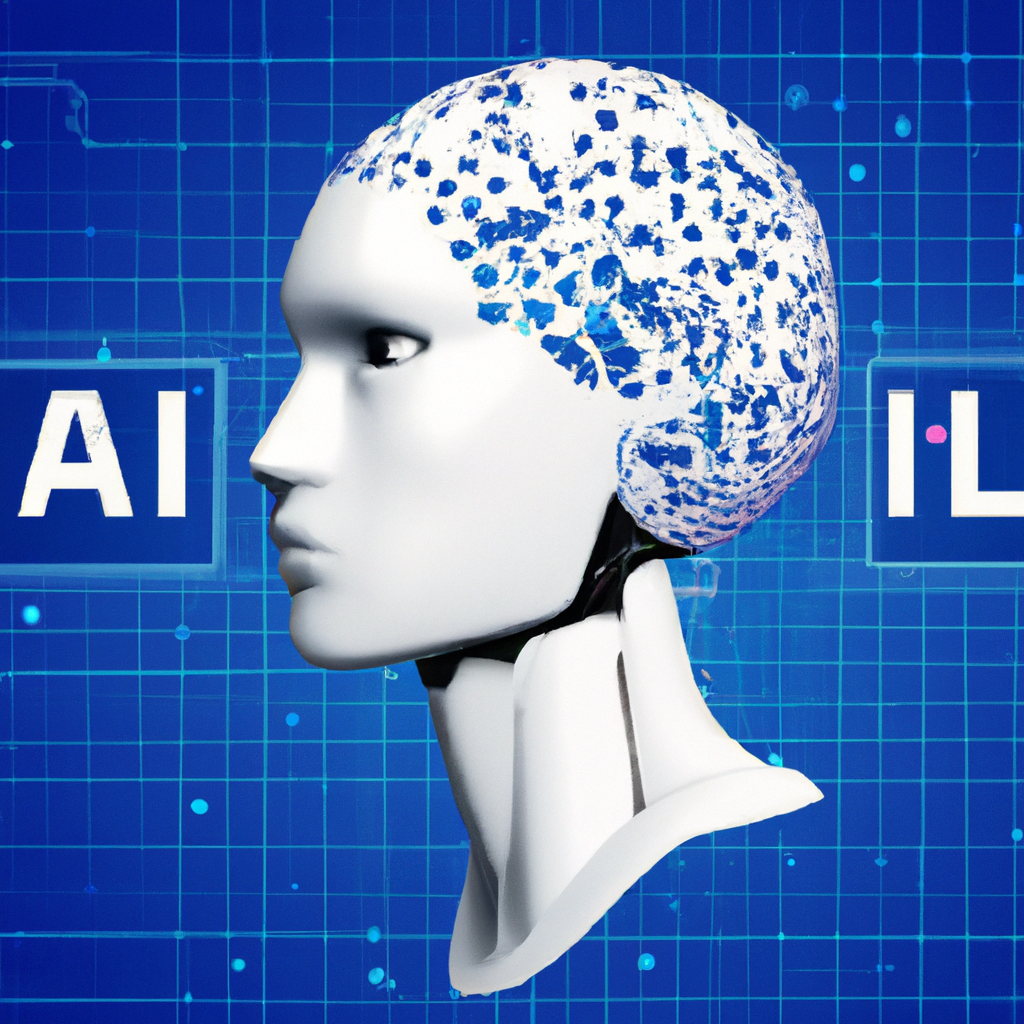
Cost and accessibility
While AI technology holds immense potential, its high implementation and maintenance costs pose a significant challenge, particularly for small businesses or individuals with limited resources. Developing and deploying AI systems often require substantial investments in infrastructure, data acquisition, and specialized expertise. This creates barriers to entry and limits access to AI technology, leading to a divide between organizations and individuals who can afford it and those who cannot.
Moreover, limited access to AI technology is exacerbated in developing countries. The digital divide and lack of technological infrastructure hinder the adoption and integration of AI in many regions. This further widens the technological gap between developed and developing nations, creating disparities in access to the benefits of AI and hindering economic growth and development in those regions.
Dependence on technology infrastructure is another challenge when it comes to AI accessibility. AI systems rely on a robust and reliable technological infrastructure, including internet connectivity and power supply. In areas with limited infrastructure or unreliable access to technology, the potential benefits of AI remain out of reach. Bridging the technological divide and ensuring equitable access to AI technology are important considerations for a more inclusive society.
Impacts on social interactions
The increasing integration of AI systems in various aspects of our lives has led to a reduction in human interaction and empathy. As AI-powered technologies such as virtual assistants and chatbots become more prevalent, there is a risk of replacing human-to-human interactions with impersonal and transactional interfaces.
This shift towards a technology-driven society can contribute to social isolation and detachment. Human interaction plays a crucial role in fostering social connections, building empathy, and promoting mental well-being. Excessive reliance on AI systems that minimize or eliminate human interactions can lead to a lack of social engagement and a decrease in overall life satisfaction.
Furthermore, the extensive use of AI in social media algorithms and recommendation systems can have negative effects on mental health. AI-driven algorithms are designed to maximize user engagement and often prioritize content that elicits emotional responses or reinforces users’ existing beliefs. This can lead to echo chambers, where individuals are exposed to a narrow range of opinions and perspectives, reinforcing biases and contributing to polarization. In extreme cases, this can result in the spread of misinformation and the manipulation of public opinion.
Unemployment and income inequality
The automation of jobs through AI technologies has led to increased unemployment rates in many industries. As AI systems can perform tasks more efficiently and cost-effectively than humans, organizations are often incentivized to replace human workers with AI-driven alternatives. This displacement of human labor leads to job losses and increased competition for limited employment opportunities.
Moreover, the rise of AI has contributed to widening income disparities. The benefits of AI technology, such as increased productivity and profits, often accrue to organizations and individuals with access to and control over AI resources. This concentration of wealth and power can further exacerbate income inequalities, as those who are unable to adapt or participate in the AI-driven economy may struggle to secure stable employment and adequate income.
Job polarization is another consequence of the increased use of AI. While AI systems are capable of replacing routine and repetitive tasks, they still struggle with tasks that require advanced cognitive skills or creativity. This has led to a division in the job market, with an increase in demand for highly skilled professionals who can work alongside AI systems and a decrease in demand for jobs that can be automated. This polarization of jobs further contributes to income inequality and societal divisions.
Lack of creativity and innovation
Despite the advancements in AI technology, it still lacks the ability to think outside predefined algorithms and generate truly creative solutions. AI systems are programmed to process data and identify patterns based on predefined rules or algorithms. While this makes them valuable for tasks that require data analysis and pattern recognition, it limits their ability to come up with novel ideas or think creatively.
Creative problem-solving is a uniquely human ability that often requires intuition, imagination, and the ability to make connections between seemingly unrelated concepts. These higher-order cognitive functions are challenging to replicate in AI systems, as they rely on a combination of knowledge, experience, and the ability to think abstractly. The limitations in AI’s creative problem-solving abilities can hinder innovation and restrict the potential for breakthrough discoveries or solutions to complex problems.
Furthermore, the widespread adoption of AI technologies can stifle the development of human potential. Relying heavily on AI for decision-making and problem-solving tasks may reduce opportunities for individuals to develop their critical thinking and problem-solving skills. By delegating these tasks to AI systems, individuals may become overly reliant on technology, limiting their personal and professional growth.
Cybersecurity threats
As AI technology becomes more sophisticated and integrated into critical sectors such as healthcare, transportation, and finance, the potential for hacking and malicious use increases. AI systems can be vulnerable to cyberattacks, ranging from data breaches to system manipulation or sabotage. The consequences of these cybersecurity threats can be severe, including compromising sensitive personal information, disrupting essential services, or even causing physical harm.
Safety risks in critical sectors are also a concern when it comes to AI. For example, autonomous vehicles rely on AI systems to navigate and make real-time decisions on the road. Any flaws or vulnerabilities in these AI systems can have disastrous consequences, endangering the lives of both passengers and other road users. Ensuring the safety and security of AI technologies in critical sectors is crucial to mitigate these risks.
Moreover, the use of AI can also contribute to the spread of manipulation and misinformation. AI-driven algorithms determine the content users are exposed to on social media platforms, search engines, and recommendation systems. This opens the door for malicious actors to exploit AI systems to spread false information, manipulate public opinion, or engage in cyber warfare. Addressing these cybersecurity threats requires ongoing research, robust regulation, and a commitment to enhancing the security of AI systems.
Legal and regulatory challenges
The rapid advancement of AI technology poses significant challenges in enforcing legal and regulatory frameworks. Assigning responsibility and liability can be particularly difficult when it comes to AI systems. Traditional legal frameworks often struggle to hold AI systems or their developers accountable for their actions or decisions. Questions arise regarding who should be held responsible when an AI system makes a mistake or causes harm.
Navigating complex legal frameworks is another challenge in the context of AI. The legal landscape surrounding AI is still evolving, and existing laws may not adequately address new challenges and risks associated with AI technologies. Developing and implementing adequate regulations and policies that strike the right balance between promoting innovation and protecting public interests is a complex and ongoing process.
Ensuring transparency and accountability is also crucial in the deployment of AI systems. AI technologies often involve complex algorithms and decision-making processes that may be difficult to comprehend or explain. This lack of transparency can create concerns about bias, discrimination, or manipulation. Establishing standards for transparency and accountability in AI systems is essential for building public trust and addressing ethical and societal concerns.
In conclusion, while AI technology offers tremendous potential to revolutionize various industries and improve our lives, it is important to recognize and address its disadvantages and challenges. From job displacement and ethical concerns to social impacts and cybersecurity threats, the drawbacks of AI must be carefully considered and mitigated to ensure a future in which AI benefits all of society. Balancing technological progress with ethical considerations, equitable access, and robust regulation is crucial to harness the power of AI for the greater good.
